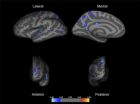(Press-News.org) On 3 October 2014, the European Medicines Agency (EMA) hosted a meeting with representatives of Rare Cancers Europe (RCE) to discuss RCE's recent publication of a consensus paper on the methodology of clinical trials in rare cancers (1).
Rare Cancers Europe (RCE) is a multi stakeholder initiative promoted by ESMO (representing healthcare professionals, patients and industry) dedicated to putting rare cancers on the European political agenda. In their consensus document, RCE argue that a higher degree of uncertainty should be accepted for regulatory as well as clinically informed decision-making in rare cancers, to overcome the limitations imposed by small population trials.
Over 4 million people in the European Union are affected by rare cancers. Despite the rarity of each of the 186 rare cancers, they represent in total about 20% of all cancer cases, including all cancers in children, diagnosed in the EU27 each year (2). Because of the small numbers affected, it is difficult to organise large randomised clinical trials. Dr Paolo Casali, Chair of RCE said: "Innovative approaches should be used in clinical trials for rare cancers. Study protocols today call for large number of patients (3). Unfortunately, in rare cancers, which by definition affect small numbers, the methodology applied should be different, allowing for more uncertainty, without affecting patient safety, of course."
The agenda for the meeting included discussions on adaptive trials, the Bayesian methodology, the role of uncontrolled studies, low power randomised trials, innovative approaches to summarise evidence, surrogate end-points, tumour response as an endpoint, the use of data from compassionate and off-label use for drugs and the role of patients in study planning and design.
Robert Hemmings, Chair of the Scientific Advice Working Party at EMA explained: "Whilst fully powered randomized clinical trials remain a gold-standard source of evidence about a new medicine, it is fully recognized that such investigations will not always be possible in rare diseases. In these situations, regulators are open to discuss use of complementary methodologies and evidence sources to enhance the overall evidence base. We also have the approval mechanisms to recognize uncertainties that are inherent to trials with small sample sizes in our decision making."
"EMA is ready to engage with all groups, including academic research groups. Most scientific advice requests come from industry, but we welcome and encourage requests from academia for scientific advice for academic trials. We are happy to continue our work with ESMO and RCE to understand exactly where research on rare cancers is struggling so that we can find a way forward," explained Dr. Francesco Pignatti, Head of Oncology Evaluation at EMA.
Markus Wartenberg, SPAEN patient representative who attended the meeting, concluded: "Patients don't understand endpoints. Every day patients are dying. We need access to treatment, we need better treatments and for some rare cancers we simply need 'a' treatment because there is no treatment at all."
INFORMATION:
Notes to Editors
About RCE
Rare Cancers Europe (RCE) is a multi-stakeholder initiative dedicated to putting rare cancers firmly on the European policy agenda and to implementing 39 political and stakeholder recommendations (pdf).
About ESMO
The European Society for Medical Oncology is the leading European professional organisation representing medical oncologists.
About EMA
The European Medicines Agency is a decentralised agency of the European Union, located in London. The Agency is responsible for the scientific evaluation of medicines developed by pharmaceutical companies for use in the European Union. It began operating in 1995.
References
1. Rare Cancers Europe methodological recommendations for clinical studies in rare cancers: a European consensus position paper. Ann Oncol (2014) doi: 10.1093/annonc/mdu459
2. Rare cancers are not so rare: the rare cancer burden in Europe. Rare Care Working Group. Gatta G. Eur J Cancer. 2011 Nov; 47(17):2493-511. doi: 10.1016/j.ejca.2011.08.008. Epub 2011 Oct 25 RARECARE working group
3. EU Clinical Trials Directive
EMA open to discuss use of complementary methodologies for rare cancers
2014-10-14
ELSE PRESS RELEASES FROM THIS DATE:
New information about how neurons act could lead to brain disorder advancements
2014-10-14
COLUMBIA, Mo. – Neurons are electrically charged cells, located in the nervous system, that interpret and transmit information using electrical and chemical signals. Now, researchers at the University of Missouri have determined that individual neurons can react differently to electrical signals at the molecular level and in different ways—even among neurons of the same type. This variability may be important in discovering underlying problems associated with brain disorders and neural diseases such as epilepsy.
"Genetic mutations found in neurological disorders ...
Orphanage care linked to thinner brain tissue in regions related to ADHD
2014-10-14
Under the rule of dictator Nicolae Ceausescu, thousands of Romanian children were placed in overcrowded orphanages with bleak conditions and minimal human contact. Even after the 1989 revolution, the legacy of institutionalization continued. Only recently has research and public concern over early childhood environments caused changes in policies.
University of Washington research on children who began life in these institutions shows that early childhood neglect is associated with changes in brain structure. A paper published this month in Biological Psychiatry shows ...
Corruption of the health care delivery system
2014-10-14
LEBANON, NH – The foundation of evidence-based research has eroded and the trend must be reversed so patients and clinicians can make wise shared decisions about their health, say Dartmouth researchers in the journal Circulation: Cardiovascular Quality and Outcomes.
Drs. Glyn Elwyn and Elliott Fisher of The Dartmouth Institute for Health Policy & Clinical Practice are authors of the report in which they highlight five major problems set against a backdrop of "obvious corruption." There is a dearth of transparent research and a low quality of evidence synthesis. ...
Personalised treatment for stress-related diabetes
2014-10-14
Researchers at Lund University in Sweden are testing a treatment for type 2 diabetes which targets the disease mechanism itself - and not just the symptoms. For the first time, knowledge about the individual patient's genetic risk profile is being used. The treatment completely restores the capacity to secrete insulin, which is impaired by the risk gene.
"The concept of treatment personalised to the individual's risk profile has great potential. Our results show that it is possible to block the effects of a common risk gene for type 2 diabetes", says Anders Rosengren, ...
Are there enough fish to go around?
2014-10-14
Scientists from the University of York have released a report highlighting the gap between declining wild fish supplies and healthy eating advice recommending more seafood.
While the health benefits of eating fish have become better appreciated in recent years, many wild fish stocks continue to be overfished.
In a study published in Marine Pollution Bulletin, Dr Ruth Thurstan, now a Research Fellow at the University of Queensland, and Professor Callum Roberts, Professor of Marine Conservation at the University of York, used historical fisheries data and population ...
Immune cells in the liver drive fatty liver disease and liver cancer
2014-10-14
The results of their research have been published as the cover story of the renowned medical journal Cancer Cell.
Fatty liver disease – alongside fatty liver due to massive alcohol consumption – is mainly caused by excessive consumption of fat and sugar combined with a lack of exercise or a sedentary life style. This is referred to as non-alcoholic fatty liver disease (NAFLD). If NAFLD becomes chronic – e.g. through the constant uptake of high lipids and high sugar combined with lack of excercise a chronic inflammatory response is triggered in the liver ...
Parkinson: How toxic proteins stress nerve cells
2014-10-14
This news release is available in German. FRANKFURT Parkinson's Disease is the second most common neurodegenerative disorder. In Germany alone, almost half a million people are affected. The focus of the disease is the progressive degeneration of dopamine-producing nerve cells in a certain region of the midbrain, the substantia nigra. Misfolded proteins are the cause. Until recently, it was unclear why damage is confined to specific nerve cells. A team or researchers led by Frankfurt neurophysiologists has now defined how this selective disease process begins using ...
Researchers identify potential drug that could help treat cystic fibrosis
2014-10-14
From an early age, the lungs of individuals with cystic fibrosis (CF) are colonised and infected by bacteria, a common example being S. aureus. These bacterial infections cause the lungs to become inflamed, infected, and can eventually lead to permanent lung damage. Researchers from the University of Pennsylvania and the Howard Hughes Medical Institute previously showed that an enzyme called Sphingomyelin phosphodiesterase C (SMaseC) produced by the S. aureus bacterium may harm the health of CF patients. Now, they have discovered an inhibitor for this pathogenic bacterial ...
More physical activity improved school performance
2014-10-14
Just two hours of extra physical activity each week can improve school performance. This has been shown by a study of approximately 2,000 twelve-year-olds carried out by scientists at the Sahlgrenska Academy, University of Gothenburg.
The scientists Lina Bunketorp Käll, Michael Nilsson and Thomas Linden, at the Centre for Brain Repair and Rehabilitation at the Sahlgrenska Academy, University of Gothenburg, have tested the hypothesis that increased physical activity stimulates learning and improves school performance.
In the study, published in the scientific periodical ...
The neuroscience of holding it
2014-10-14
Wherever you are right now: squeeze your glutes. Feel that? You just also contracted your pelvic floor too, whether you wanted to or not.
Scientists studying the source of chronic abdominal and pelvic floor pain found an unexpected connection in the brain between the pelvic floor – the muscle responsible for, among other things, keeping you from peeing your pants – and various muscles throughout the body. They've found some evidence for a link as far away as the toes (try tapping a toe and see if you feel the clench), but the strongest link so far is with ...


